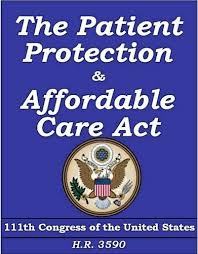Join our team of experienced tax professionals at R&G Brenner! We're hiring CPAs, EAs, office managers, assistants, and building maintenance staff. Apply now for exciting opportunities in tax and accounting services.
The Affordable Care Act Includes a Tax on Medical Devices. Is That a Bad Thing?

Were one to listen to the bipartisan rhetoric that has been whipped up in the House against the Affordable Care Act’s 2.3% excise tax on medical devices, it’s easy to see how a relatively small tax can be enough to scare a whole lot of people. Everything from the claims of company closures to the threat of over 43,000 American jobs being shipped overseas is being blamed on this tax, so finding the truth can take a bit of digging past the $150 million spent on lobbying against it since 2008.
What Is this Tax and Why Does it Exist?
The ADA Medical Device Excise Tax is a 2.3% tax on medical devices. Everything from gloves to stethoscopes to X-ray machines is subject to the tax. The law is unconcerned with and doesn’t specify where the device needs to be made to be taxed, as long as it is being sold in the U.S. However, if a device is exported to be sold elsewhere, the tax does not apply. The tax was created as part of a way to ensure that the ACA helps fund medical insurance coverage and is intended to produce $29 billion in revenue. However, in 2013 it was discovered that even the expected amount of tax is not being collected. Because the medical device industry has spent millions to ensure a causal association between the tax and lost jobs, Congresspeople of both parties are worried about the effects of the law on constituent companies in their areas.
“43,000 Jobs Lost”
A statistic often repeated in industry papers and invoked in the halls of Congress is that tens of thousands of American jobs have been lost as a result of the addition of the tax. The most common claim, that 43,000 jobs were (or will be) lost, comes from a study by Diana and Harold Furchtgott-Roth commonly cited by AvraMed and other lobbying companies. However, when called on to discuss the study by the Annenberg Institute, the lobbying group revealed that the number was actually significantly smaller and that in fact many of the losses had nothing to do with the excise tax at all.
Whether the Tax Is at Issue or Not, It Will Be Coming Up In 2015
As the medical device lobbying industry has been using a flawed statistic on which to found its claim, and the White House isn’t blinking, this will probably become an issue in the new term among the new Republican Congress. But are they likely to vote against the tax? While it’s hard to say for certain, it’s been predicted that they will vote to repeal the Affordable Care Act first (expecting that effort to fail) and then begin to attack supporting pillars of the Act, such as the Medical Device tax.
How successful such a strategy will ultimately be depends on the political will of the President, who may very well try to find another $30 billion to cover for the potential loss, and the collective will of the new Republican Congress hungry to damage the President’s agenda. Depending on whether or not cuts can be made elsewhere to compensate for the loss, the medical device tax is one that the President seems willing to lose to keep his signature legislation alive. However, this calculus can change depending on the amount of cooperation the Executive & the Legislative branches show each other.









